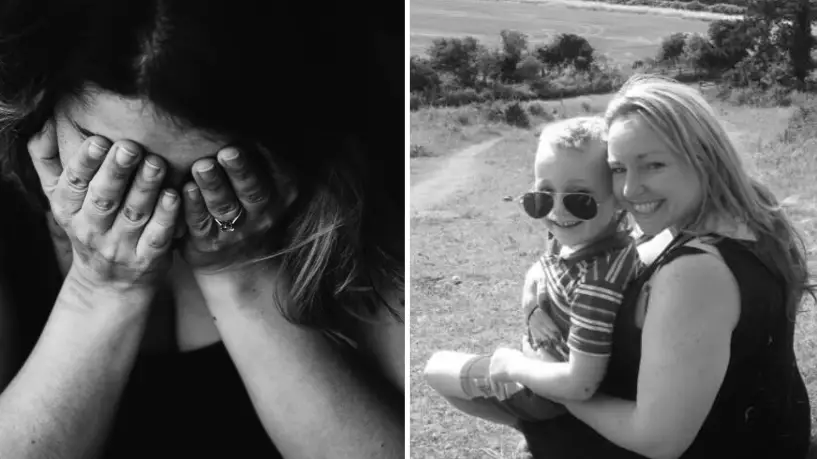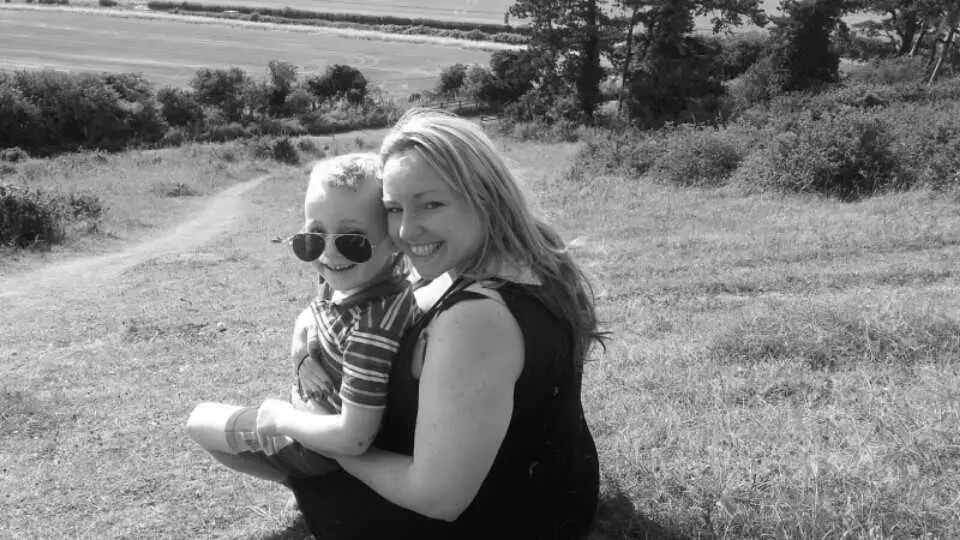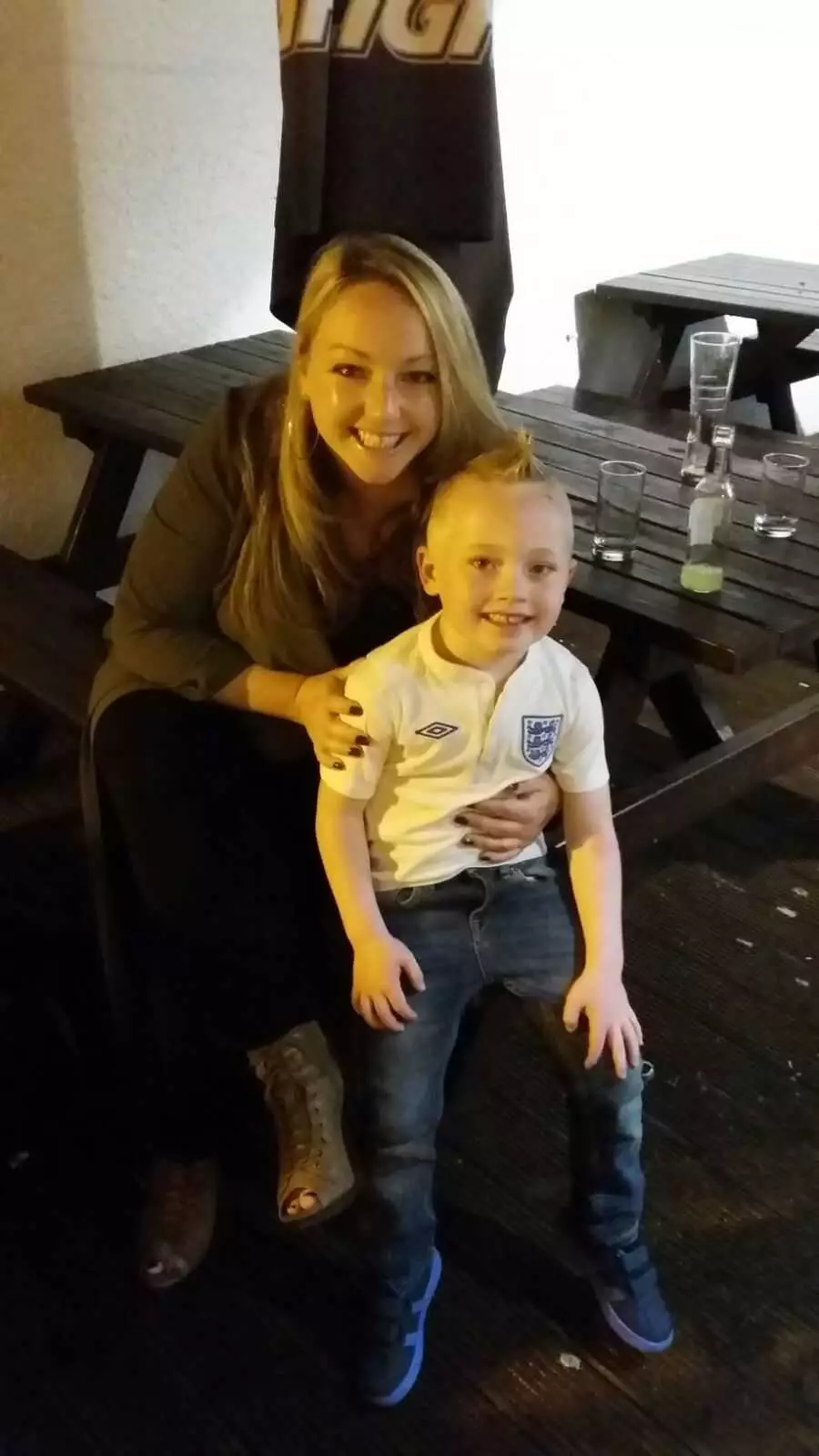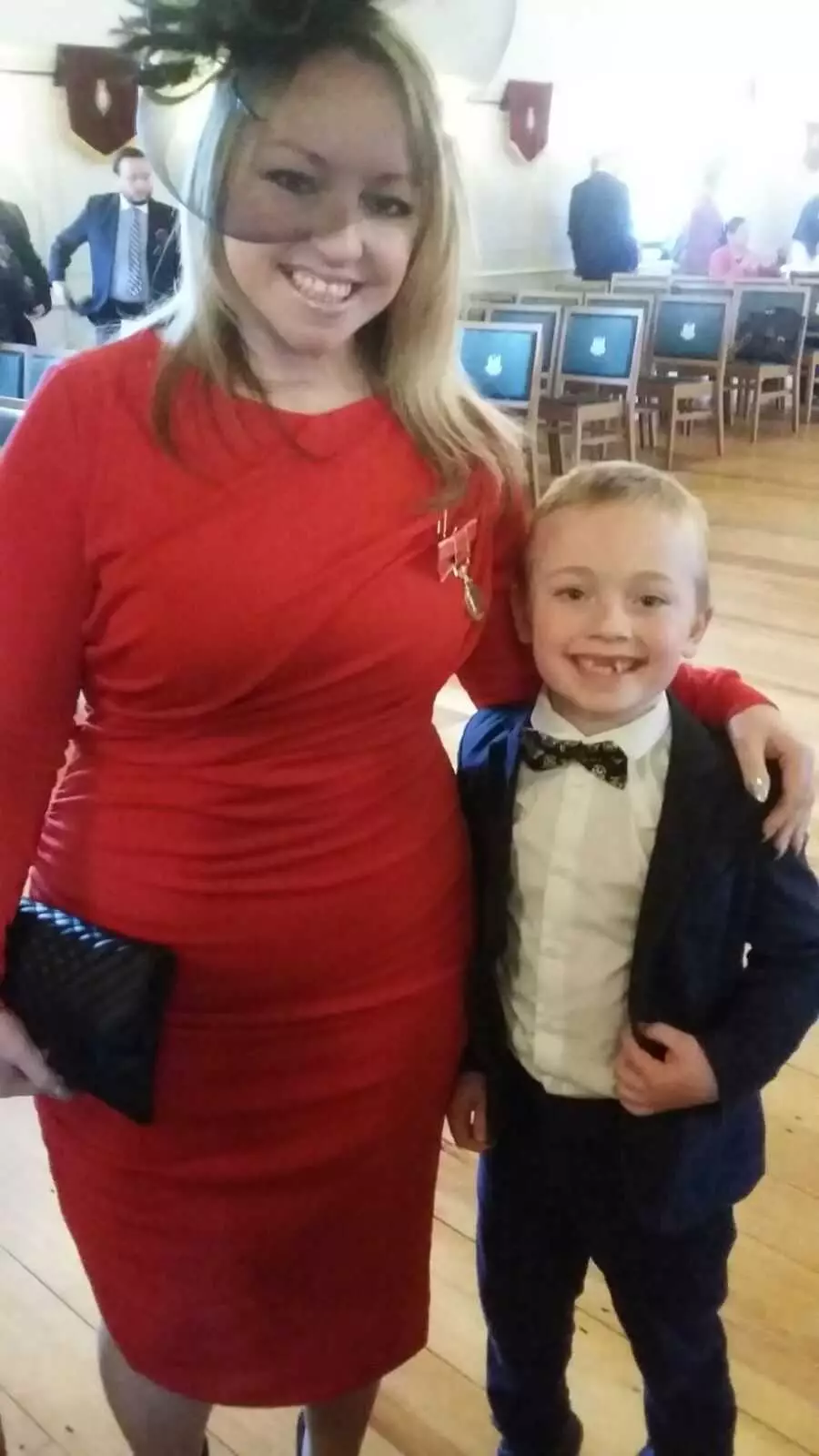
When it comes to mental health, it sometimes takes a celebrity to kick start the conversation. Popstar Adele recently spoke about her friend's postpartum psychosis diagnosis in a now-viral Instagram post and for many women it was the first time they heard of the condition.
While postpartum psychosis is a rare diagnosis- affecting one in every thousand women or 0.1 per cent of the population- it is one worthy of discussion.
The condition causes new mothers to have manic episodes, delusions and hallucinations, among many other devastating symptoms.
Advert
Eve Canavan was diagnosed with postpartum psychosis six weeks after giving birth to her baby boy, Joe, back in 2010. But while the diagnosis came weeks after she'd welcomed her son, Eve felt things weren't right just a few moments after giving birth, and she was hit with what she now knows to be postpartum psychosis.

"About an hour after I had Joe, I just felt really unwell and really detached from him and I was really, really, really scared of him," the 37-year-old told PRETTY52.
"And so for about six weeks I wouldn't go near him, I wouldn't look at him, I couldn't hold him, I was too scared to be near him."
Advert
Civil servant Eve also felt like she was 'trapped', hallucinating at one point that she'd been buried alive in a coffin as well as trapped on a gurney.
"When you have a baby, you can get hallucinations and mania. I thought I could cut through the clouds with a pair of scissors," Eve recalled.
"I felt trapped in something, like I was trapped in the world and wanted escape."
She continued: "I had awful hallucinations where I was floating in the corner of the room looking down on myself. My worst one was that I thought I was buried alive - I thought I was trapped in a coffin. I was hallucinating that I couldn't get out of the coffin."
Advert
At home in London, Eve, aged 29 at the time, couldn't dress herself, hold a pen in her hand or write her name at the worst of her psychosis.
She explained: "It's horrendous, all I wanted to do was die. It feels so bad that I thought the only way to get away from the feelings was to die.
"You wake up feeling like you're trapped alive in a coffin and you can't get out. To feel like that every day for two months while trying to look after your baby is the worst feeling in the world.
"Physically I couldn't even dress myself, I couldn't lift up a pen, I couldn't remember how to write my own name. I couldn't do anything for myself."
Advert
Like many new mums, Eve had never heard of the condition, adding that if she'd maybe been told then her family would have known sooner that she was suffering from a psychiatric emergency.
She explained: "If someone had said to me, 'This could happen after you've had your baby out of nowhere. You could have these visions where you're on fire," I'd have been like, 'What?!'.
"I'd have never thought it would ever happen, then when it does happen, it feels like you're never ever going to get better."
Advert

Recovery for mums suffering postpartum psychosis involves being admitted to a specialist mother and baby unit, of which there are 15 here in the UK, where they are treated with anti-psychotics and anti-depressants.
Eve explained: "With psychosis, it's like you're in another realm, it's like you're not in your own body. Your brain is basically taken away from you. I had lucid moments where I knew I was incredibly unwell and I was desperate for help."
Some of the treatment is more drastic than drugs.
"Some women have electro convulsive therapy, although I didn't have that," recalled Eve. "I had a therapy called EMDR which is a progression therapy."
ECT involves sending an electric current through the brain to help relieve the symptoms of some mental health problems.
After three months, Eve was deemed 'medically okay' but in reality, it took her around three years to fully recover.
"In my head I found it really hard [to bond with my son] because I thought I'd made a really massive mistake in having him. I kept saying, 'He's trapped me, I'm trapped in this forever'," Eve said.
"But the thing that kept me bonding with him was breastfeeding him. I felt like I wasn't a good mum and I felt like I didn't want him, want him near me and felt like things were better before he was here."
It wasn't until her son was three-months-old that she felt like she could finally be on her own with him.
While plenty might instantly link psychosis to postnatal depression, Eve says that the two conditions are actually very different.
"Psychosis is really different to postnatal depression in the sense that it is really dramatic, so you can't miss it basically. Women will be saying weird things. They'll be saying they can see things, smell things that aren't there," she told us.
"I thought I could smell burning all the time and nothing was burning.
"It couldn't be missed, everyone knew that I was incredibly unwell. It really is up to family and friends to park you in front of your doctor and say, 'She's not well, you need to deal with her'.
"It is a psychiatric emergency. As soon as you see someone who's had a baby saying, 'I feel like I'm seeing things floating' or 'the baby is evil,' you need to ring 999 immediately."

While Eve thinks it is great that Adele's restarted the conversation around postpartum psychosis, she argues that we should have always been talking about it, especially as doctors don't know why it happens.
She explained: "There is actually a part of me that thinks it's great that Adele has spoken about it and everyone is talking about it, but then there's a part of me that thinks it is a real shame that it takes a celebrity to mention it for it to be picked up on.
"Women have babies every day and it can affect anybody. It's rare but the outcomes can be awful."
Eve made the decision to not have any more children after her baby boy, as while there's little knowledge on the causes, evidence suggests that mums who've had psychosis in past, will more than likely get it with the birth of more children.
For more help and advice on postpartum psychosis, you can visit Action On Postpartum Psychosis here.
If you are suffering with feelings of anxiety or depression, call The Samaritans on 116 123 (UK) or 116 123 (ROI).
Featured Image Credit: Pexels/Eve Canavan